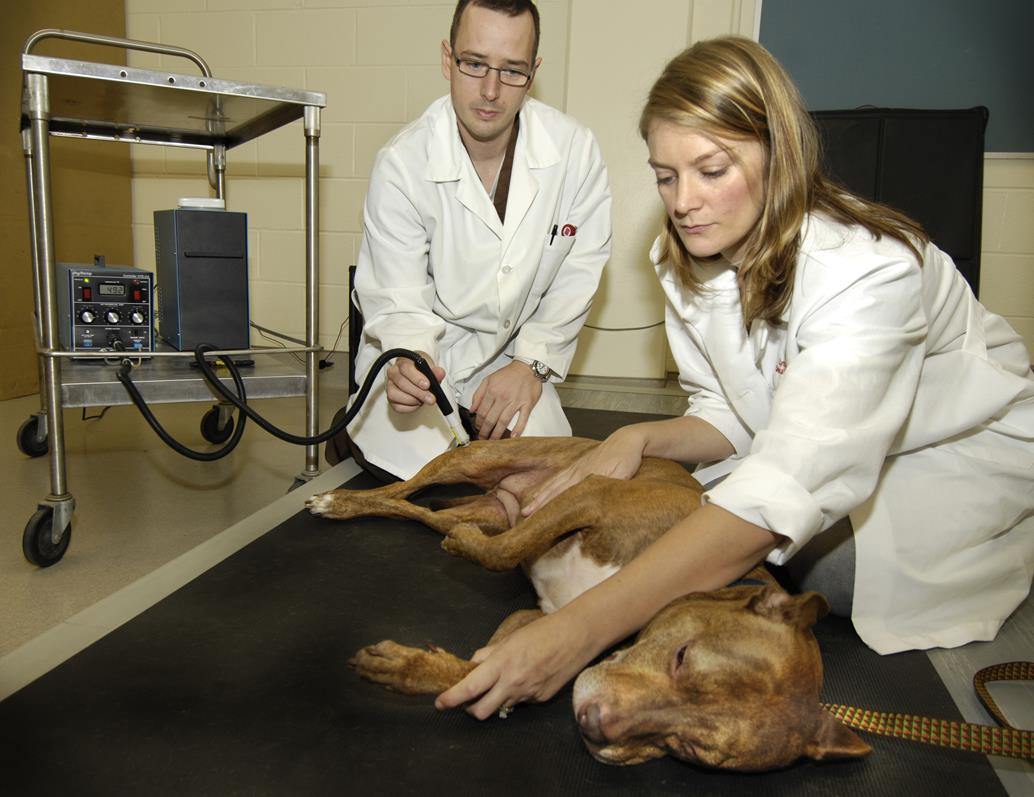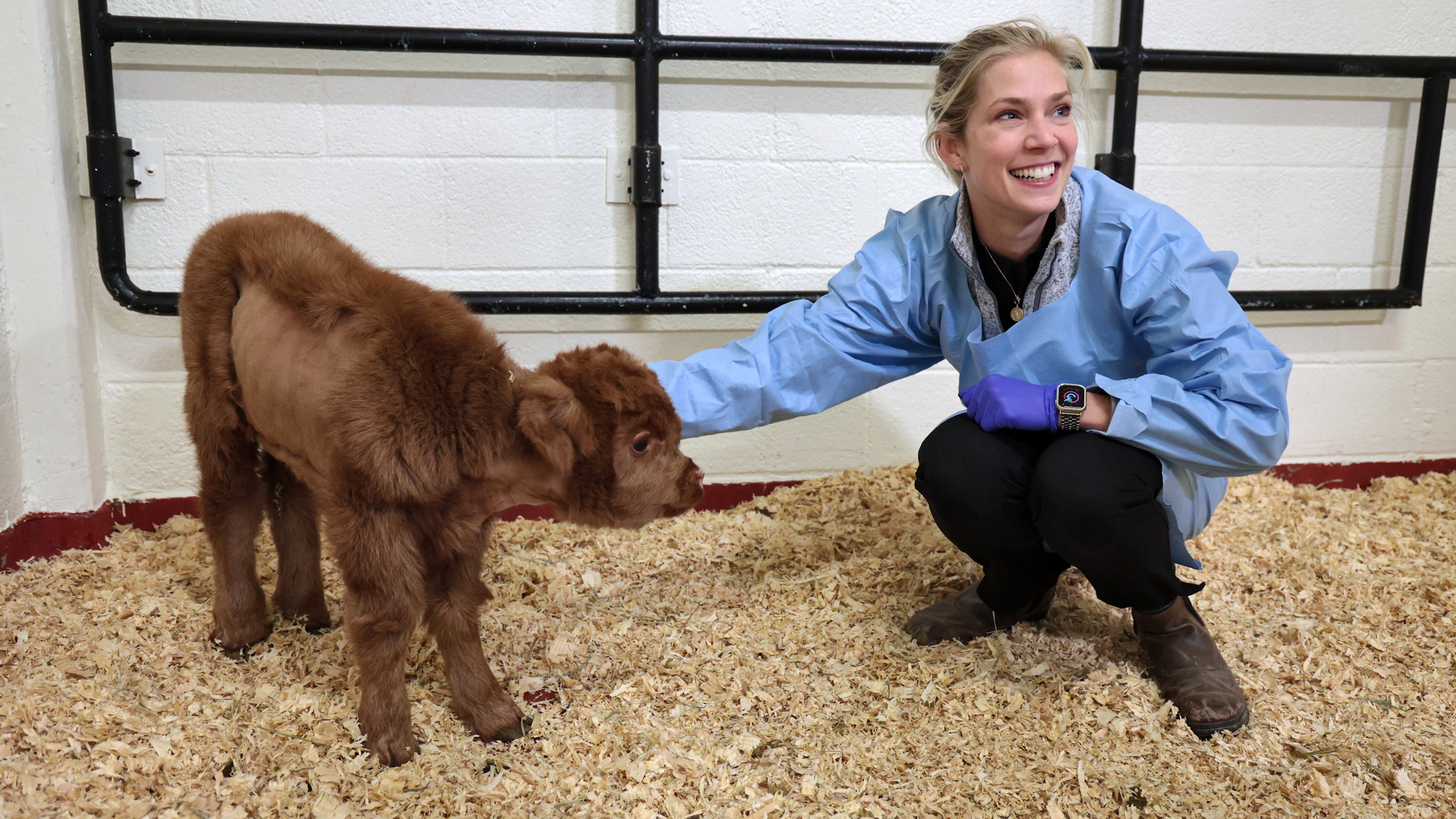NC State University Comparative Pain Research Lab Studies Role of Pain in Chronic Mobility Issues

Researchers in the Comparative Pain Research Laboratory at NC State University’s Veterinary Health Complex are seeking participants for a clinical trial that seeks to measure pain levels in dogs.
Eligible dogs are two or older, weigh at least 33 pounds, and exhibit lameness in hind limbs, stiffness in the hips and/ or stifle joint, or a marked decrease in activity. Owners who have dogs with suspected or confirmed osteoarthritis in hips or the stifle joint are encouraged to have their pets considered for the study.
This project aims to determine whether or not sensations are processed abnormally in dogs with chronic pain—that is, whether “central sensitization” is present. This information will help researchers measure pain levels as well as help determine the best therapies to use.
The research team will develop and use techniques (quantitative sensory testing) to measure central sensitization in vivo, in dogs with naturally occurring painful disease. These techniques are similar to what is being used in human medicine. The study will determine whether or not sensory processing is different between normal dogs and dogs with osteoarthritis. The researchers also plan to develop other methods to measure the body’s ability to control pain.
“We are seeking to better understand how chronic mobility issues from a naturally occurring disease affect the dog’s sense of pain and the level of discomfort,” says investigator Dr. David Knazovicky.
“Veterinary medicine does not have a standard, validated method of evaluating pain level, and we expect to develop techniques that will help in diagnosing the animal’s discomfort,” continues Dr. Knazovicky. “This will help us gain new insight into underlying mechanism involved in pain and could lead to earlier and better diagnosis and eventually different treatment methods for dogs suffering from osteoarthritis and other mobility issues.”
The study will cover the cost of the physical and orthopedic examinations. If necessary, the study may also cover the costs of radiographs, serum chemistry profile, complete blood count (CBC), and urinalysis.
For more information or to determine if your dog is a candidate for the study, contact Dr. Knazovicky at 919-513-6019 or david_knazovicky@ncsu.edu.


